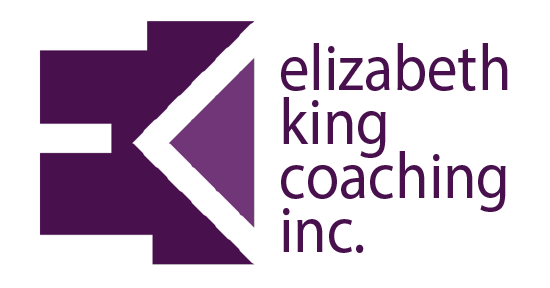Choosing a Tutor and What To Expect From Test Prep
screen shot (c) warner bros
Whether you're prepping independently, are looking for an online course, or you're interested in finding the best test prep tutoring in the United States, you have to understand the SAT and ACT test preparation industry landscape to make the best choice for you.
No Industry Accreditation
The most important thing you have to understand when deciding how to prepare for the ACT or SAT, choosing whom you’re going to use for your preparation materials, or picking a tutor, you have to remember that there is no accreditation authority in the test prep industry. While any other school teaching at this level would be subject to an objective review board that says, “yes, this school teaches these particular skills in this particular way at a specific quality level” for any kind of core curricula, tutoring companies big and small are almost all completely independent of any accountability to a larger educational authority.
It's essentially a free-for-all.
The Test Makers have Prep Partners
Of course, there are exceptions to the total free-for-all. The College Board, maker of the SAT, has partnered with Khan Academy to present what they bill as their official test preparation methodologies--for free, no less. Similarly, Kaplan has a partnership of some sort with the test makers at the ACT company. In this way these organizations have been “accredited” by the test makers--to a degree.
It also means that both test making companies acknowledge that students' scores benefit from preparation beyond the natural, nominal score increases they usually earn taking a test multiple times. Prep partners tell us that test prep works.
Prep Partners Likely Do Not Provide The Best Test Prep
Just because the test makers now acknowledge that test preparation benefits students, the ACT and SAT test makers are not going to actually teach students how to crack their tests—neither directly through their own prep materials nor through a tutoring service over whom they have any measure of governance. Of course they’ll guide you to materials that can indeed be helpful, but they won’t actually help you to the fullest extent possible—or anywhere close to it.
It’s actually an absurd idea that they would. No one writes a test and then says “…and here is every little detail you need to understand about what’s on this test and how we present our questions.”
What they're really saying is "prep works--so we need to be careful not to prep students too well, lest we destroy the validity of our test."
The Value You Get From the Test Maker
You'll want to turn to the test maker for a few things:
- Real, Full ACT and SAT tests (find free ones here). You want to practice with real materials, not someone else’s interpretation of real material, which may or may not get at what authentic, psychometrically designed questions examine.
- Real, Extra practice questions. Khan Academy has so many practice SAT questions you can use in addition to those questions that appear on the real practice tests. Note that Kaplan does not have similar questions available for the ACT for free.
Otherwise, the test makers offer some things you'd get from any prep guide:
- A reliable general list of the topics and concepts the test maker might include.
- Broad explanations of the most commonly tested topics that presume familiarity with prerequisites and fundamentals.
I'm of the opinion that the test makers like offering strategies to students because they can be effective distractors from the meat and potatoes of the real materials and skills tested on the SAT and ACT.
Why You Need to Turn to an Independent Test Prep Expert
Real test preparation experts have no allegiance to larger brand strategies and, instead, are interested in helping students achieve significant score gains: hundreds of points on the SAT, and usually 5 or 6 composite points on the ACT. They do that by offering an approach entirely different from the test prep companies.
- Thorough, detailed outlining and explanation of all the topics for which you are responsible
- Detailed analysis of the way particular questions are constructed
- Cross referenced question lists so you can see themes across different iterations of questions throughout real prep material
- Insight on why some questions feel like “trick” questions and how to see them coming
- Lessons on how to apply concepts that may differ from how they were taught in school
- Guidance on navigating common mistakes and typical human error
- Tactics for tackling anxiety and managing stress
- Complete study tips for what to memorize
Experts Who Can Teach: A Perfect Score or an Ivy League Degree Does Not a Teacher Make
Every single person in the test preparation industry calls him/herself an expert (again, that's easy to do when there’s no accreditation), so you need to figure out how to suss out a company or a tutor's competency and credibility.
There’s a terrible old adage that “people who can’t do, teach.” It’s most often used to refer to people in the arts who didn’t “make it” on Broadway or in film, so now they give lessons to make a living. It’s an insidious aphorism and propagates disrespect for teachers of all kinds.
The problem is another related idea about teachers that isn’t really spoken but definitely comes into play in the test prep market: it’s the idea that people who know all the fundamentals that appear on a test and can take a test well can teach someone else how to do the same, which isn’t necessarily true.
That is to say: if you want the best tutors, you need to find people who score in the 99th percentile on standardized tests. However, those scores alone do not guarantee that any individual will be able to teach someone else how to earn those scores.
Here’s what else to look for in a tutor:
- Find a tutor with experience beyond college in only a handful of tests. Preferably you’d want at least five years experience. The best test prep tutors have 10+ years of experience and have taught hundreds of individual students. This means they know how students think and are familiar with the ways approaches to math, grammar, vocabulary, and science have changed over long periods of time in public and private education. They know where to "meet" students at whatever level they may be.
- A lot of recent college graduates like to beef up their resumes and say they’ve been tutoring "for years" because they were in a peer tutoring group in high school or they TA’d a class in college. That's how you get people who are twenty-two years old who claim to have been tutoring for seven years, etc. Be clear on how someone categorizes his experience. Peer tutoring in high school or college is not the same as the authority and breadth of experience that comes form preparing students for specific tests as a professional.
- Know where your tutor was trained and whose approaches she likes to use. Sometimes people who are independent still teach guessing strategies and methods for working backwards that don't involve real learning. Real learning and preparation for success in college should be every tutor's priority--which means math, grammar, reading comprehension, and critical thinking should be every tutor's priority.
- Similarly, someone who usually tutors for math or english subjects as a supplement to school classes can teach the math or grammar topics on the SAT or ACT, but that person will usually not have the nuanced knowledge of the test itself to provide insight on patterns of questions and unique ways that standardized tests are developed. That particular knowledge is paramount to earning top scores. You don’t want to rely on someone who can only help you solve a problem on a sample test; you want someone who can help you use what you’re learning to solve problems and identify pitfalls in test specific problems you’ll see independently in the future.
- Again, your tutor must have a commitment to education and teaching in preparation for college. Top tutors will tell you that the best way to prepare for any college admissions exam is to improve your math, grammar, vocabulary, critical reasoning, and analytical skills. They will supplement those skills with test taking strategies and methods for managing anxiety, but they will not base their preparation on “strategy;” they’ll base it on educational values and a commitment to reviewing, reframing, and instilling fundamentals. Anger at guessing strategies and cutting corners is a good sign— it means a tutor is the real deal.
- Great tutors have authored materials that even people who are not currently in school can review and easily learn from themselves.














